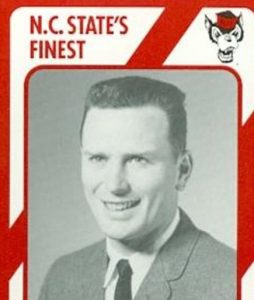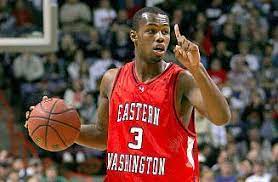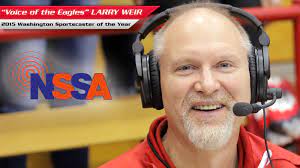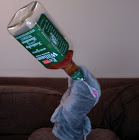Everett Case was born in 1900, less than 1 decade after the game of basketball was played for the very 1st time in 1891. After graduating from college in 1923 he spent the next 4 decades as 1 of the most successful coaches of his era: 726 wins in 23 years as a high school coach (including 4 Indiana state championships), followed by 377 wins and 6 NCAA tourney appearances during 18 years as head coach at NC State. He was inducted into the North Carolina Sports Hall of Fame in 1964, the Indiana Basketball Hall of Fame in 1968, and the Basketball Hall of Fame in 1982. HoopsHD’s Jon Teitel got to chat with 1959 ACC POY Lou Pucillo about his legendary coach. Today marks the 55th anniversary of Case’s passing on April 30, 1966, as we reflect on his life/legacy.
Case was nicknamed the “Old Grey Fox”: how did he get the nickname, and how did he like it? I learned about the nickname when I got here in 1955. He had grey hair, which is how he got the nickname. NC State conducted a national coaching search after losing 15 straight times to UNC. In fact, the guy who suggested they hire Case was legendary shoe salesman Chuck Taylor!
He compiled a 726-75 record in 23 years as a high school coach, including winning 4 Indiana state titles from 1925-1939 at Frankfort High School: how was he able to dominate for almost a quarter-century? He was a great coach and had great athletes.
After leaving the Navy in 1946 he became coach at NC State, where he won 9 straight conference titles to begin his tenure there: how on earth as he able to come in and be so good right from the start? He brought a lot of his players from the military who were very mature. He played a full-court press and started beating everyone.
He was responsible for a variety of innovations (numbers on jerseys, cutting down the nets after a big win, announcing starting players before the game, the backcourt 10-second rule, reviewing film to prepare for a game): which 1 did you like the most? We used to only have numbers on our warm-up shirts so it was nice to get numbers on our actual jerseys.
He unleashed his “Hoosier Hotshots” in an up-tempo style of basketball that the fans loved: how was he able to get so many players from Indiana to come east to Raleigh? That is where his roots were, which is why he focused his recruiting efforts there. The guys from the Northeast were more about the give-and-go, while the Midwestern guys were more strong/physical.
What are your memories of the 1947 NIT (Ralph Beard had 15 PTS in a win by eventual national runner-up Kentucky)? That was a bit before my time but I know for a fact that both he and Wildcats coach Adolph Rupp were very competitive.
In 1949 the school built the largest basketball facility in the Southeast (12,400-seat Reynolds Coliseum): how much of a factor was Case in making this a reality? The original gym was just a small place where farmers would come in to see the horse shows. When the administration hired Case in 1946 they convinced him that they would build the biggest arena in the area. He threatened to leave after they failed to follow through despite his initial success so they decided to finish the building.
In the 1956 NCAA tourney Henry Nowak scored 29 PTS and Fran Corcoran made a jumper with 5 seconds left in a 1-PT 4-OT win by Canisius: where does that rank among the most devastating losses of Case’s career? It was the most devastating loss of his career and was also tough on me and my freshman teammates. We were listening to the game on radio: it was supposed to be a sure win because Canisius did not have anyone over 6’4”. If we had won that game then I was going to go to my hometown of Philly to see us play in the following round in the Palestra. Vic Molodet was 1 of the best players I ever saw but he was called for 3 charging fouls in the 1st half, which was unheard of back then.
He was named ACC COY 3 times during a 5-year span from 1954-1958: what did it mean to him to receive such outstanding honors? He was very competitive and loved basketball: he was not married so his philosophy was to “eat, sleep, and dream basketball”. His goal was to have a basketball court in every driveway.
The ACC basketball tourney was largely his idea: how did he come up with the idea, and how did he convince the other schools to go along with it? A lot of coaches did not like the idea of a conference tourney but he was positive that it was a good idea because it worked well when he was growing up in Indiana. However, UNC coach Frank McGuire did not like it because he thought it would undo all of his team’s hard work during the regular season.
Before passing away in 1966 he instructed that his body be laid facing NC Hwy. 70 so he could “wave” to later Wolfpack teams as they traveled to Durham/Chapel Hill: how big were those in-state rivalries back in the day? I blow my car horn every time I drive past him! As the team was driving to the 1974 Final 4 to face UCLA, Coach Norm Sloan ordered the bus to stop by Coach Case’s resting place so that the team could pay its respects. The in-state rivalries were huge. Everyone knows about UNC/Duke but Wake Forest was an underrated team: it was all because of Bones McKinney. All of the schools were within 30 miles of each other, which is almost unheard of outside of Philly.
He was inducted into the Basketball Hall of Fame in 1982: when people look back on his career, how do you think he should be remembered the most? He should be remembered as the 1 who got it all started. He was a great recruiter/promoter. Case would have local North Carolina businessmen meet the opposing coach at the airport and give him the 1st-class treatment: the best hotels, a bottle of liquor waiting for him in his room, etc. That is how he was able to get so many great teams like Louisville/Cincinnati to come play at the Dixie Classic.









